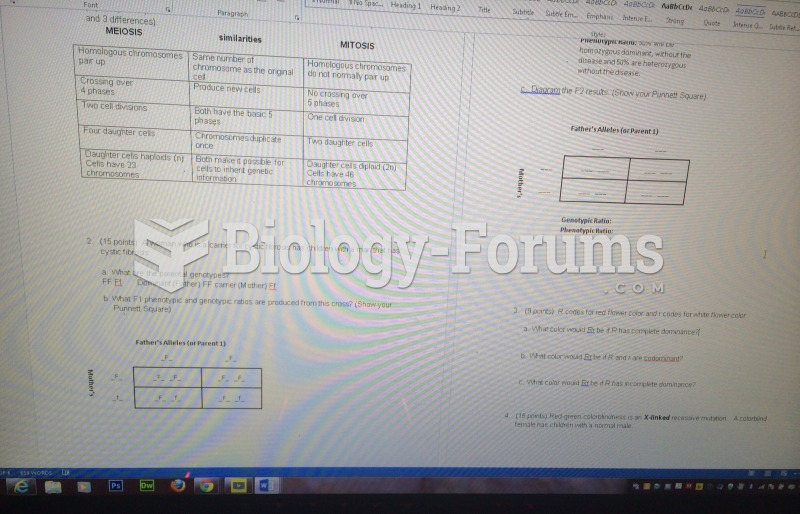Answer to Question 1
Confidentiality
Answer to Question 2
The legal system in the United States and the several mental health professions overlap and interact in a variety of ways. Both define behavior that is out of the ordinary, but in the legal professions, the term insanity tends to be used, and in the mental health professions, the term mental illness is used. The former is a legal term that has implications for a defendant. For example, in some cases an individual can commit a crime but be found not guilty by reason of insanity if his mental illness makes it impossible for him to appreciate the nature and quality of his act, to understand what is right and what is wrong. Even here there is overlap with the mental health professions because laws do not actually define what constitutes insanity; they leave it up to expert testimony by psychiatrists and/or clinical psychologists to present the information to a judge or jury. Even before a trial, the question of a defendant's competence to stand trial can be raised. Actually the question of a defendant's competence can be raised at any time: before trial, during trial, during sentencing, or as a result of sentencing. Again, mental health professionals are used to help make the determination of competence and in some cases to provide treatment mandated by the courts. An extreme form of conflict between the two fields in one in which the legal system wants to have mental health professionals administer treatments so that a defendant can be temporarily competent for a death sentence to be imposed. Most mental health professionals see this as against their ethical codes. Mental health professionals are involved in divorce cases and determinations of custody. The extreme case here is where a parent is accused of being so incompetent at parenting that the court considers termination of her parental rights. Once again, mental health professionals will assess and present expert testimony that a judge or jury will use to make this determination. At time the legal profession oversees the mental health professions by hearing law suits against those professionals by clients who feel that they are the victims of neglect or wrong-doing at the hands of a mental health professional. All in all, there is very concerted and long-standing interaction between the two areas of activity.







